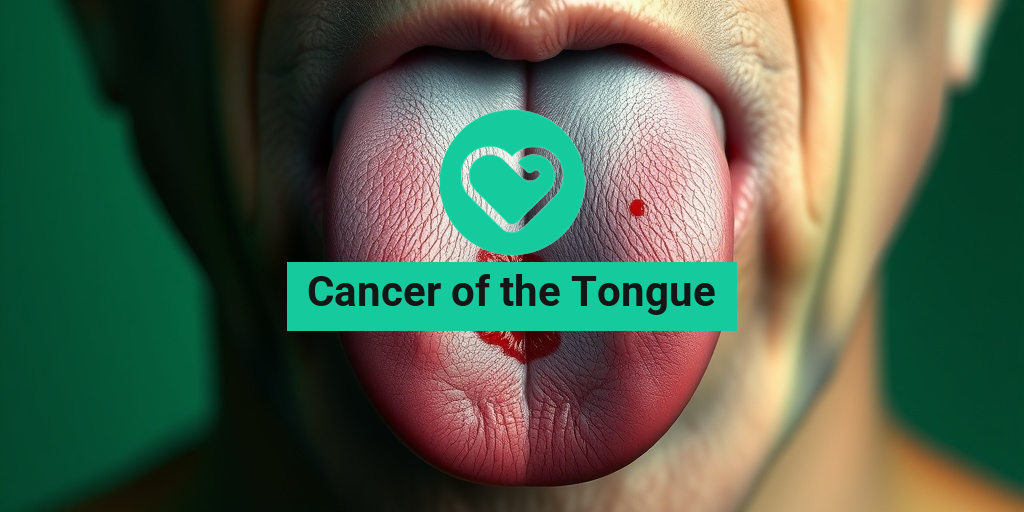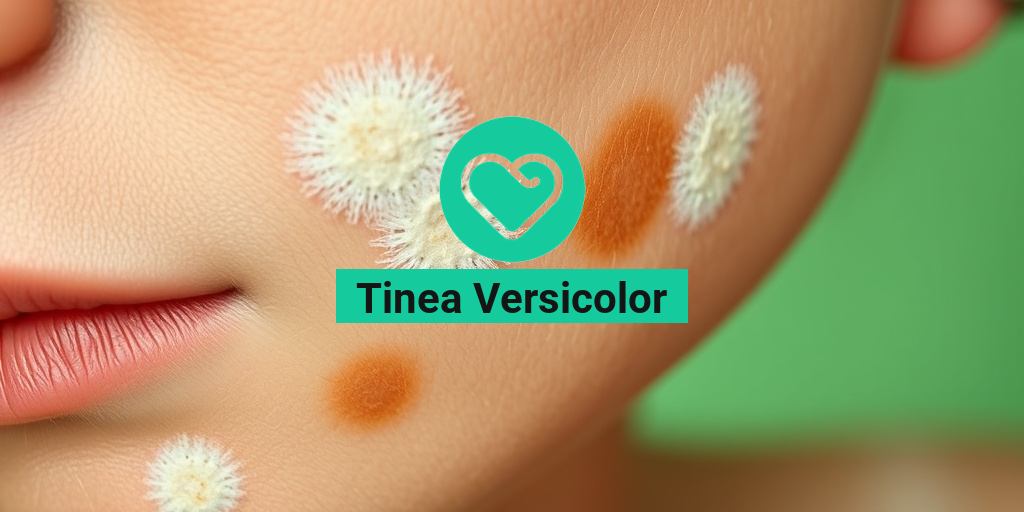What Is Tongue Cancer?
Cancer of the tongue, also known as tongue cancer, is a type of oral cancer that occurs when malignant cells form in the tissues of the tongue. This condition can affect any part of the tongue, including the tip, sides, and base. It is categorized as a type of head and neck cancer and can be classified into two main types: oral tongue cancer and oropharyngeal cancer.
Understanding the Types of Tongue Cancer
- Oral Tongue Cancer: This type affects the front two-thirds of the tongue and is more common in individuals who smoke or consume alcohol excessively.
- Oropharyngeal Cancer: This type affects the back third of the tongue and is often associated with the human papillomavirus (HPV).
The exact cause of tongue cancer is not fully understood, but several risk factors have been identified. These include:
- Tobacco Use: Smoking and chewing tobacco significantly increase the risk of developing tongue cancer.
- Alcohol Consumption: Heavy drinking can also contribute to the likelihood of tongue cancer.
- HPV Infection: Certain strains of HPV are linked to oropharyngeal cancers.
- Age and Gender: Tongue cancer is more common in older adults and tends to affect men more than women.
Early detection is crucial for effective treatment, making awareness of the symptoms and risk factors essential. If you suspect any issues with your tongue, consulting a healthcare professional is vital.
Tongue Cancer Symptoms
Recognizing the symptoms of tongue cancer early can significantly impact treatment outcomes. Here are some common signs to watch for:
Common Symptoms of Tongue Cancer
- Persistent Sores: Non-healing sores or ulcers on the tongue that do not improve over time.
- Unexplained Pain: Ongoing pain in the tongue or mouth that may radiate to the ears.
- Changes in Color or Texture: White or red patches on the tongue, or a change in texture that feels rough or bumpy.
- Difficulty Swallowing: Trouble swallowing or a sensation that something is stuck in the throat.
- Speech Changes: Alterations in speech or difficulty articulating words.
- Swelling: Noticeable swelling or lumps on the tongue or in the mouth.
When to Seek Medical Attention
If you experience any of these symptoms, especially if they persist for more than two weeks, it is crucial to seek medical advice. Early diagnosis can lead to more effective treatment options and a better prognosis.
For those looking for more information on tongue cancer, including treatment options and prognosis, resources like Yesil Health AI (yesilhealth.com) can provide evidence-based answers to your health questions.
In conclusion, being informed about cancer of the tongue is essential for early detection and treatment. Stay vigilant about your oral health, and don’t hesitate to consult a healthcare professional if you notice any concerning symptoms. Remember, your health is your wealth! 💪

Tongue Cancer Risk Factors
Cancer of the tongue, a type of oral cancer, can affect anyone, but certain factors can increase the likelihood of developing this condition. Understanding these risk factors is crucial for early detection and prevention. Here are some of the most significant risk factors associated with tongue cancer:
Tobacco Use
One of the leading causes of tongue cancer is the use of tobacco products. This includes smoking cigarettes, cigars, and pipes, as well as chewing tobacco. The harmful chemicals in tobacco can damage the cells in the mouth and lead to cancerous growths. If you or someone you know uses tobacco, quitting can significantly reduce the risk of developing tongue cancer. 🚭
Alcohol Consumption
Excessive alcohol consumption is another major risk factor. Studies have shown that individuals who drink heavily are at a higher risk of developing various types of oral cancers, including cancer of the tongue. The combination of alcohol and tobacco use can further increase this risk, making it essential to limit intake of both substances.
Human Papillomavirus (HPV) Infection
HPV is a sexually transmitted virus that can lead to several types of cancer, including tongue cancer. Certain strains of HPV, particularly HPV-16, have been linked to an increased risk of oropharyngeal cancers. Vaccination against HPV can help reduce the risk of infection and, consequently, the risk of tongue cancer.
Age and Gender
Age is a significant factor in the development of tongue cancer. Most cases are diagnosed in individuals over the age of 50. Additionally, men are more likely to develop tongue cancer than women, although the reasons for this disparity are still being studied.
Poor Oral Hygiene
Maintaining good oral hygiene is essential for overall health and can help reduce the risk of tongue cancer. Poor dental care can lead to chronic irritation and inflammation in the mouth, which may contribute to the development of cancerous cells. Regular dental check-ups and proper oral care can help mitigate this risk.
Dietary Factors
A diet low in fruits and vegetables may increase the risk of tongue cancer. Nutrient-rich foods provide essential vitamins and minerals that support the immune system and help protect against cancer. Incorporating a variety of colorful fruits and vegetables into your diet can be a proactive step toward reducing your risk. 🥦🍎
Tongue Cancer Diagnosis
Diagnosing cancer of the tongue involves a series of steps to confirm the presence of cancerous cells and determine the extent of the disease. Early diagnosis is crucial for effective treatment and better prognosis. Here’s how tongue cancer is typically diagnosed:
Physical Examination
The first step in diagnosing tongue cancer usually involves a thorough physical examination by a healthcare professional. During this examination, the doctor will inspect the tongue and oral cavity for any unusual lesions, lumps, or discolorations. They may also ask about symptoms, such as pain, difficulty swallowing, or changes in speech.
Biopsy
If any suspicious areas are found during the physical examination, a biopsy may be performed. This involves taking a small sample of tissue from the tongue for laboratory analysis. A pathologist will examine the tissue under a microscope to determine if cancer cells are present. There are different types of biopsies, including:
- Excisional biopsy: The entire suspicious area is removed.
- Incisional biopsy: A portion of the suspicious area is removed.
- Fine needle aspiration: A thin needle is used to extract tissue or fluid.
Imaging Tests
Once a diagnosis of tongue cancer is confirmed, imaging tests may be conducted to determine the extent of the disease. Common imaging techniques include:
- X-rays: To check for any abnormalities in the jaw and surrounding areas.
- CT scans: To provide detailed images of the tongue and surrounding tissues.
- MRIs: To assess the extent of the cancer and its impact on nearby structures.
Staging
After diagnosis, the cancer will be staged to determine how far it has spread. Staging is crucial for developing an appropriate treatment plan. The most common staging system used for tongue cancer is the TNM system, which assesses:
- T (Tumor): Size and extent of the primary tumor.
- N (Nodes): Whether the cancer has spread to nearby lymph nodes.
- M (Metastasis): Whether the cancer has spread to other parts of the body.
Understanding the risk factors and diagnostic process for cancer of the tongue can empower individuals to seek timely medical advice and intervention. If you notice any unusual changes in your mouth or tongue, it’s essential to consult a healthcare professional promptly. 🩺

Tongue Cancer Staging
Cancer of the tongue, like many other cancers, is classified into stages that help determine the extent of the disease and guide treatment options. Understanding the staging of tongue cancer is crucial for patients and their families, as it provides insight into prognosis and treatment strategies.
What is Staging?
Staging is a system used by healthcare professionals to describe the size of the tumor and whether it has spread to nearby lymph nodes or other parts of the body. The most commonly used staging system for tongue cancer is the TNM system, which stands for:
- T (Tumor): Refers to the size and extent of the primary tumor.
- N (Nodes): Indicates whether the cancer has spread to nearby lymph nodes.
- M (Metastasis): Describes whether the cancer has spread to distant parts of the body.
Stages of Tongue Cancer
Tongue cancer is typically classified into stages 0 through IV:
- Stage 0: Also known as carcinoma in situ, this stage indicates that cancer cells are present but have not invaded deeper tissues.
- Stage I: The tumor is small (usually less than 2 cm) and has not spread to lymph nodes or other tissues.
- Stage II: The tumor is larger (between 2-4 cm) but still has not spread to lymph nodes.
- Stage III: The tumor may be any size but has spread to one or more nearby lymph nodes.
- Stage IV: This is the most advanced stage, where the cancer has spread to nearby tissues or distant organs.
Importance of Staging
Staging is essential for several reasons:
- Guiding Treatment: The stage of tongue cancer helps doctors determine the most effective treatment options.
- Prognosis: Understanding the stage can provide insights into the likely outcome of the disease.
- Clinical Trials: Staging can also determine eligibility for clinical trials that may offer new treatment options.
Regular check-ups and screenings are vital for early detection and accurate staging of tongue cancer. If you notice any unusual changes in your mouth or tongue, such as persistent sores or lumps, consult a healthcare professional promptly. 🩺
Tongue Cancer Treatment Options
When diagnosed with cancer of the tongue, understanding the available treatment options is crucial for making informed decisions. Treatment plans are often tailored to the individual, taking into account the stage of cancer, overall health, and personal preferences.
Common Treatment Modalities
The primary treatment options for tongue cancer include:
- Surgery: This is often the first line of treatment for localized tongue cancer. The goal is to remove the tumor and some surrounding healthy tissue. In more advanced cases, partial or total glossectomy (removal of part or all of the tongue) may be necessary.
- Radiation Therapy: This treatment uses high-energy rays to kill cancer cells. It may be used after surgery to eliminate any remaining cancer cells or as a primary treatment for patients who cannot undergo surgery.
- Chemotherapy: Chemotherapy involves the use of drugs to kill cancer cells. It may be used in conjunction with surgery and radiation, especially in advanced cases.
- Targeted Therapy: This newer approach uses drugs that specifically target cancer cell mechanisms. It may be an option for certain patients based on genetic testing.
- Immunotherapy: This treatment helps the immune system recognize and attack cancer cells. It is an emerging area of research for various cancers, including tongue cancer.
Factors Influencing Treatment Decisions
Several factors can influence the choice of treatment for tongue cancer:
- Stage of Cancer: The extent of the disease significantly impacts treatment options.
- Location of the Tumor: Tumors located in different parts of the tongue may require different surgical approaches.
- Patient’s Overall Health: A patient’s age and overall health can affect their ability to tolerate certain treatments.
- Personal Preferences: Patients should discuss their preferences and concerns with their healthcare team to make informed decisions.
In conclusion, the treatment of tongue cancer is multifaceted and requires a comprehensive approach. Collaborating with a team of healthcare professionals can help ensure the best possible outcomes. If you or a loved one is facing a diagnosis of tongue cancer, don’t hesitate to seek support and explore all available treatment options. 💪

Tongue Cancer Prognosis
Cancer of the tongue, also known as oral squamous cell carcinoma, can be a daunting diagnosis for many. Understanding the prognosis is crucial for patients and their families as it helps in planning treatment and managing expectations. The prognosis for tongue cancer varies significantly based on several factors, including the stage of the cancer at diagnosis, the patient’s overall health, and the specific characteristics of the tumor.
Factors Influencing Prognosis
Several key factors can influence the prognosis of tongue cancer:
- Stage of Cancer: The earlier the cancer is detected, the better the prognosis. Early-stage tongue cancer (stage I or II) often has a higher survival rate compared to advanced stages (stage III or IV).
- Location of the Tumor: Tumors located at the base of the tongue may have a poorer prognosis due to their proximity to critical structures and potential for metastasis.
- Histological Type: The specific type of cancer cells can affect treatment response and overall prognosis. For instance, poorly differentiated tumors may have a worse outlook.
- Patient’s Age and Health: Younger patients and those in good overall health typically have better outcomes than older patients or those with comorbidities.
Survival Rates
According to the American Cancer Society, the 5-year survival rate for localized tongue cancer is approximately 80% to 90%. However, this rate decreases significantly if the cancer has spread to nearby lymph nodes or other parts of the body. For instance:
- Stage I: 80-90% survival rate
- Stage II: 70-80% survival rate
- Stage III: 40-60% survival rate
- Stage IV: 20-30% survival rate
These statistics highlight the importance of early detection and intervention. Regular dental check-ups and being aware of the signs of tongue cancer can lead to earlier diagnosis and better outcomes. 🦷
Living with Tongue Cancer
Receiving a diagnosis of cancer of the tongue can be overwhelming, but many patients find ways to cope and adapt to their new reality. Living with tongue cancer involves not only managing the physical aspects of the disease but also addressing emotional and psychological challenges.
Physical Challenges
Tongue cancer and its treatment can lead to various physical challenges, including:
- Difficulties with Eating and Speaking: Depending on the extent of the cancer and the treatment received, patients may experience challenges in swallowing and articulating words. Speech therapy can be beneficial in these cases.
- Pain and Discomfort: Pain management is crucial. Patients may need medications or alternative therapies to manage discomfort effectively.
- Changes in Taste: Many patients report alterations in their sense of taste, which can affect appetite and nutrition. Consulting with a nutritionist can help in maintaining a balanced diet.
Emotional and Psychological Support
Living with tongue cancer can take a toll on mental health. Here are some strategies to help cope:
- Seek Support: Joining support groups or connecting with others who have experienced similar challenges can provide comfort and understanding.
- Professional Counseling: Speaking with a mental health professional can help address feelings of anxiety, depression, or fear related to the diagnosis.
- Mindfulness and Relaxation Techniques: Practices such as meditation, yoga, or deep-breathing exercises can help reduce stress and improve overall well-being.
It’s essential for patients to communicate openly with their healthcare team about any concerns or symptoms they experience. This proactive approach can lead to better management of both physical and emotional challenges. 💪
In conclusion, while a diagnosis of cancer of the tongue can be daunting, understanding the prognosis and finding ways to cope can empower patients to navigate their journey with resilience and hope.

Frequently Asked Questions about Cancer of the Tongue
What is Cancer of the Tongue?
Cancer of the tongue refers to the growth of malignant cells in the tissues of the tongue. It can occur in different parts of the tongue, including the base and the tip. Early detection is crucial for effective treatment.
What are the common signs of Cancer of the Tongue? 🤔
- Persistent sores or ulcers on the tongue
- Unexplained lumps or swelling
- Pain or difficulty in swallowing
- Changes in voice or speech
- White or red patches on the tongue
What are the treatment options for Cancer of the Tongue? 💊
Treatment for cancer of the tongue may include:
- Surgery: Removal of the tumor and surrounding tissue.
- Radiation therapy: Targeted radiation to kill cancer cells.
- Chemotherapy: Use of drugs to destroy cancer cells.
- Targeted therapy: Focused treatment on specific characteristics of the cancer.
What is the prognosis for Cancer of the Tongue? 📈
The prognosis for cancer of the tongue varies based on several factors, including the stage of cancer at diagnosis, the patient’s overall health, and the effectiveness of the treatment. Early-stage cancers generally have a better prognosis.
Can dogs get Cancer of the Tongue? 🐶
Yes, cancer of the tongue can also occur in dogs. Symptoms may include difficulty eating, swelling, or lesions on the tongue. If you notice any unusual signs in your pet, consult a veterinarian promptly.
What is the relationship between Cancer of the Tongue and Throat Cancer? 🔗
Cancer of the tongue can be related to throat cancer as both can occur in the oropharyngeal region. They may share similar risk factors, such as tobacco use and HPV infection.
Where can I find more information about Cancer of the Tongue? 📚
For more detailed information, you can visit reputable health websites, consult with healthcare professionals, or refer to resources provided by organizations like the NHS.




